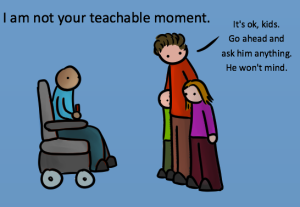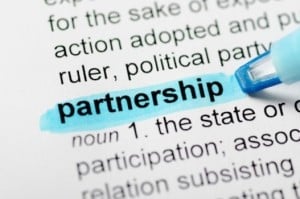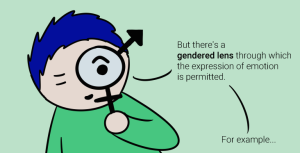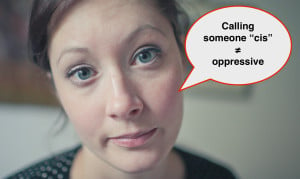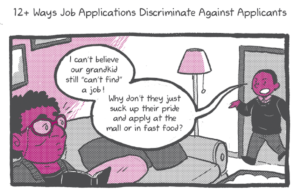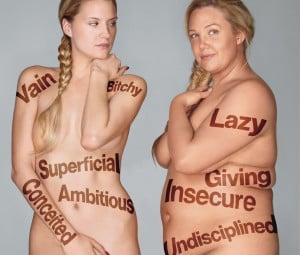
Cropped image of young person smiling, with dark long hair framing their face.
According to Nathan Rabin, the term’s regretful inventor, the Manic Pixie Dream Girl (MPDG) is “a bubbly, shallow cinematic creature that exists solely in the fevered imaginations of sensitive writer-directors to teach broodingly soulful young men to embrace life and its infinite mysteries and adventures.”
The trope, which is solely used to further the plot of male characters, is inherently sexist because it denies autonomous personhood to the MPDG. She can only exist when Hollywood’s patriarchal perspective reduces her to someone else’s fantasy instead of a unique character in her own right.
Everything from her personal attributes and shortcomings to her aspirations seem to exist for the sole ability for a man to enjoy and define her – and by extension, to enjoy and define himself.
Rabin – who invented the term to describe Kirsten Dunst’s quirky character, Claire, of Elizabethtown – explains that the archetype “taps into a particular male fantasy: of being saved from depression and ennui by a fantasy woman who sweeps in like a glittery breeze to save you from yourself, then disappears once her work is done.”
And, rightfully so, feminists criticize this trope for its blatant sexism. Women, femmes, and feminine folk being reduced to instruments for men’s pleasure and imagination? Again? Except this time, instead of being explicitly sexually objectified, she’s reduced to nothingness under the guise of being an influential character.
Do we really still have to explain why giving a female character no purpose, no identity, no nuance, no history of her own is fucked up?
Luckily, many feminists before me have already explained this. Karilla Dyer describes “how she wanted people to see [her]” as a MPDG until she noticed how “they perpetuate the idea that women exist to serve as muses to men.”
Rhiannon Thomas of Feminist Fiction also notes how the term is “used to immediately dismiss any female character who is not completely mature and sensible, who is a bit hipster and unconventional, who has a sense of fun, as ‘not good enough’” – like New Girl’s Jess, played by Zooey Deschanel. (By the way, Deschanel describes landing MPDG roles as “depressing.”) Either way, women, femmes, and feminine folks lose.
As a femme identified person in real life, I, like so many others, have to deal with the ways men translate and project the MPDG trope and their consequent desires onto me while expecting me to go along with them – especially because I’m polyamorous and bisexual. For example, explicitly stating that I’m not looking for casual sex isn’t enough to make men back down from offering it to me as they too often assume thats all I would want, or be qualified for in their own romantic trajectory. I don’t bother with online dating anymore because most of the people only message me to ask about threesomes.
More often than not, men assume that my love life is a lesbian harem (a. assuming that I am a cis woman and b. assuming that queer and gender non-conforming people and desires don’t exist) and start drilling me for details about my sexual experiences with specifically cis women.
God forbid I mention my IRL boyfriend! My reality clashes with misogynistic wet dreams. Many guys are disappointed whenever our lives aren’t pleasing to The Male Gaze.
And I want to talk more about this specific manifestation of the MPDG trope – which gets far less attention in mainstream feminist media criticism: the Manic Poly Dream Girl. Because let me make one thing clear: I’m nobody’s Manic Poly Dream Girl – and you don’t want to be, either.
Recognizing how this trope could be applied to my life in polyamory has helped me point out problematic behavior I’ve witnessed in my relationships. Of course, while monogamous people of all genders can go through this, I suspect my being a cis-assumed femme woman and polyamorous explains why people try casting me as their MPDG so frequently and shamelessly.
Even as a relationship anarchist who’s been with my polyamorous partner for eleven years, I’ve played the part of MPDG without my full knowledge or consent many times. I didn’t realize that certain lovers were assigning vague expiration dates to our relationships that arrived when I was done “helping” their mononormative dating woes. My job isn’t to be an on-call girlfriend for whenever monogamous dating world gets too daunting for men.
In thinking through this, here are three of the ways that I’ve seen the Manic Poly Dream Girl concept in my own life.
1. Manic Poly Dream Girls Are Treated as Filler for the Blanks in Their Lovers’ Lives
At the expense of a MPDG’s humanity and individuality, the audience watches any substance in a MPDG’s character conform to the shape of someone else’s expectations like fluid in a glass.
Characters like Nancy from I Love You, Alice B. Toklas represent a cliché that has been traced back as far as ancient Irish mythology.
Nancy is a hippie girl whom the straight-laced protagonist, Harold, leaves his wife-to-be, Joyce, at the altar for with these parting words: “There’s got to be something beautiful out there.”
Note how he’s looking for “something beautiful,” not someone beautiful. That beautiful “something” he wants is not a partner – it’s an experience. But my polyamorous life is more than some stage prop to drive someone else’s plot.
Similarly, in a polyamorous arrangement, people often make the dangerous mistake of only acknowledging one side of it without considering other partners’ perspectives.
When you’re a MPDG, men tend to rip your story from your hands and edit it to their liking. I noticed certain lovers superimposing expectations without my consent. No matter how politely I tell them I wasn’t monogamous, they shun me for having healthy boundaries instead of accepting that we’re not compatible.
I’ve been shamed for being everything from greedy to careless, like Harold when he left his wife for Nancy. Unlike Harold, I was honest about what I wanted. I get suspicious whenever someone wants an “exclusive” relationship with me. Still, my honesty never stopped men I’m lightly involved with from getting disappointed when I “choose” non-monogamy over an exclusive relationship.
Thanks to male sexual entitlement, many men get frustrated with me whenever I express how my human needs conflict with their desires. That’s not respectful at all.
Many people – especially newbies – often enter the world of polyamory with mononormative expectations and never question their desires in the first place. In a heteronormative culture that socializes women to defer to men, that makes sense.
People feel free to force polyamorous women – and femmes in particular – to conform to a transphobic and cisnormative relationship norms like OPP (One Penis Policy – or the expectation that a woman only involve herself with one person with a penis, always with the fallacious assumption that that person is a cis man), putting romantic relationships before aromantic ones, and insistence upon DADT (Don’t Ask, Don’t Tell).
Hello? What about me?
I can’t really relate to someone who expects all of these things from me because I don’t want them for the people I love. It’s fine if you can’t either.
2. Relationships with Manic Poly Dream Girls Are Mostly Considered ‘In the Moment’
Despite manic pixie Claire (Kirsten Dunst) from Elizabethtown cracking jokes throughout the whole movie, Drew Baylor (Orlando Bloom) still tells her, “I like you without the jokes.” His statement erases a key component of Claire’s marked personality trait: her humor.
I get why people enjoy my personality in context. They find weird freedom in my anarchistic perspective on life and love. But no matter how well I explain myself, I find myself being heard without actually being listened to.
For people like myself, polyamory feels more like an orientation than a lifestyle produced by decision-making alone. Relationship anarchy is my lovestyle. My relationship anarchy is not your vacation from monogamy. It hurts to hear someone claim to love us while ignoring our polyamorous reality.
People tend to tell me they love me a lot – and that’s okay. But I’ve learned to associate a premature romantic “I love you” with a likely breakup. My boyfriend told me he loved me a week after he met me – and meant it. But I quickly learned that when other people say “I love you,” they actually mean that they love you in that moment.
People confessed their undying love and loyalty to me, only to ditch me a week later once the fact that we’d be non-monogamous sinks in. Many times, it was because a monogamous love interest came into the picture. While I respect people’s right to make fulfilling choices, I also emphasize the importance of effective communication and honesty in loving relationships. I embrace the concept of loving in the moment, but not the idea of making someone disposable like MPDGs.
We’re so much better than that.
Some people who date as couples, known as “unicorn hunters,” look for HBB (Hot Bi Babes) for a “closed triad” relationship. They think that controlling their girlfriend’s sexual/emotional agency is giving her a two-for-the-price-of-one- deal on love.
But when couple privilege goes unchecked, it can make relationships toxic and breed further inequality. I seldom hear about men feeling threatened by women dating other women. And, just by virtue of being polyamorous, we shouldn’t feel pressured to parallel those norms.
People seem to want Manic Poly Dream Girls to “disappear” at a moment’s notice without any qualms. Like MPDGs in mono relationships, many of these unicorn-hunting couples expect HBB to be cool with “disappearing” from being included in their lives.
But if someone is hiding their non-monogamous relationship with me from the public, I have every right to feel uncomfortable about it. I’ve been outspoken about my identity since I left the polyamory closet years ago – and I’m never turning back.
It’s not your fault if someone doesn’t respect you as a person.
3. Manic Poly Dream Girls Only Have Their Needs Fulfilled to Make Someone Else Feel Better
One of the MPDG trope’s most problematic features is that she exists to drive along some guy’s plot. Through this patriarchal lens, she loses her individual story in someone else’s script.
Ramona Flowers from Scott Pilgrim vs. The World has been accused of being MPDG-like. MPDGs tend to “follow similar character trajectories: they become the object of a single-minded nerdy guy’s affections, said guy goes through a series of trials to win or retrieve their chosen consort, only to discover that their inherent personality flaws and issues have led to and/or contrived the scenario in order to justify their behavior.”
The film adaptation of the graphic novel focuses on how Scott Pilgrim’s triumph over Ramona’s exes helped him grow as a person. But would Pilgrim still be championing for Ramona if he just wanted to be her friend?
Personally, I’ve been known to confront my loved ones’ aggressive exes when they refused to go away. But I also wouldn’t reduce my lover’s experimentation with their first Evil Ex (a girl) to “a sexy phase.” That part of the movie got to me because it reminded me of how often guys only acknowledge my sexual and romantic identities when it gets them off or meets their own needs. Meanwhile, I’m just a person who’d be doing these things whether you liked them or not.
Nonetheless, I’ve found myself getting flak for interrupting my partners’ “fantasies” with my real-time individuality and boundaries, no matter how consistent I was about them. In my opinion, being attuned to someone’s needs and desires is an essential aspect of being a good lover.
It’s generally easier to be realistic about fulfilling those desire, needs, and goals easier when you’re aware of what they actually are. When someone’s heart isn’t in the right place, their kindness can become selfish.
Face it: Selfish intentions can corrupt kindness. While my lover might appear to be fulfilling my needs and desires, I’ve caught them only “playing along” with non-monogamy for the sake of making me happy while knowing it wasn’t their thing and never would be.
Sure, they (multiple, not singular) called me “perfect” and told me they wanted to be with me forever. What they actually meant was they loved me for as long as it was convenient for them. After they stopped talking to me and started dating monogamous partners, they seldom realize that my version of non-monogamy only had so much to do with their momentary “break” from monogamy.
As someone who never presses partners for commitment and a proud non-passenger of Relationship Escalators, it’s hard to not feel used or deceived after handling your relationships with transparency and honesty.
***
The MPDG trope manifests within the context of relationships with specific individuals, as well as in monogamous and non-monogamous relationships alike.
I’ve never dated a couple, but I’ve dated someone who was married and had a very positive relationship with said metamour. I never once felt like they expected me to be someone I wasn’t. But I’ve heard too many extreme examples of this too often.
I hear about all sorts of individuals (including unicorn-hunting couples) taking in homeless polyamorous folks living on the streets, only to kick them out less than a week later because the person exerted boundaries like saying “no” to things like sex, being sexually or romantically “exclusive,” and other conditions that call for healthy discussion rather than assumptions.
This entitled behavior communicates a lack of regard for another person’s needs and desires. Now, I get uncomfortable just about every time a couple asks to date me online.
As someone who sees how arbitrary and restrictive labels can become, I’m completely okay with not being recognized as someone’s “girlfriend” while enjoying a romantic relationship with them. What I do have problems with, however, is someone completely shifting the tectonics of our relationship beneath my feet and then getting upset with me for questioning why our relationship is unstably quaking beneath us.
No matter how respectful I am, people resent me for pointing out the inconsistencies between their behavior and words.
If you get the hunch you’re being used for a good time, don’t shrug it off. If you’re not sure about non-monogamy, please be upfront about your reluctance from the get-go and don’t resent your partner for not doing anything wrong.
Honesty can kill the Manic Pixie Dream Complex before it starts, but even that might not be enough. Remember: You are the main character in your life story.
[do_widget id=’text-101′]
Ghia Vitale is the Assistant Editor at Quail Bell Magazine. She graduated from Purchase College with a degree in Literature along with minors in Psychology and Sociology. Her work has been featured in Ravishly, Luna Luna, The Horror Zine, Scandalous Women, and more.
Search our 3000+ articles!
Read our articles about:
Our online racial justice training
Used by hundreds of universities, non-profits, and businesses.
Click to learn more








